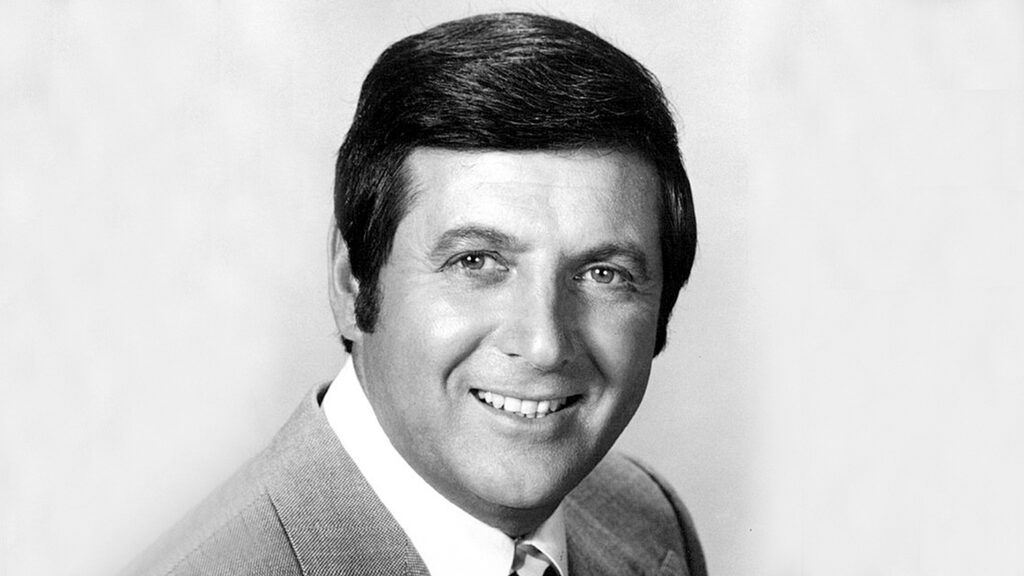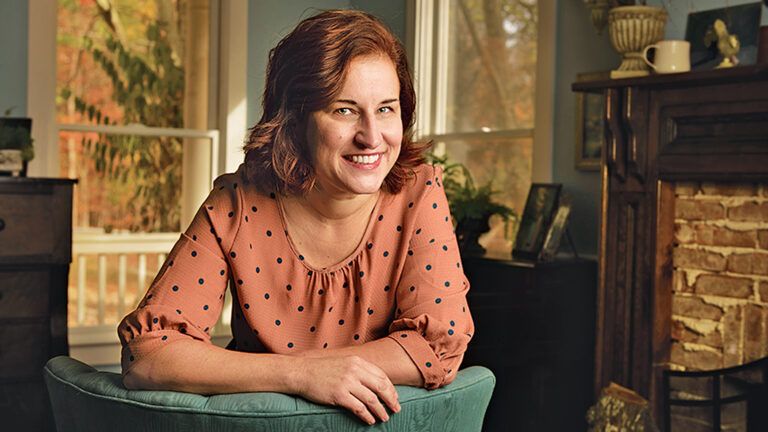A lot of thoughtful people nowadays are worried about this land of ours. They’re afraid that values are crumbling, marriage is becoming outmoded, family ties are weakening. “What’s the answer?” they ask despairingly.
There is an answer, one that has strengthened and sustained me all through my hectic years in radio and television.
I learned it from my mother, who in turn got it from … well, let me tell you about our family, and particularly about my mother, that dark-haired, dark-eyed, wonderful woman who kept whispering the answer to me all my life.
READ MORE: STEVE ALLEN ON THE VALUE OF GRATITUDE
Ours is a Jewish family, and as I grew up in the Canadian city of Winnipeg I became aware that I had been born into a very strong family tradition. Some years ago when I saw the musical Fiddler on the Roof, I said to myself, “That’s it! That’s my family.”
And in my imagination I see that even now we are playing out the sequel of what happened after Tevye and his brood left their small Russian village of Anatevka–only our Russian village was named Pavelitch.
My grandfather David came alone to Canada from Pavelitch in 1901. He left my grandmother and their three children, the third of whom was my mother, in Europe.
Eventually there were to be six more children, but that was years later, long after the train had pulled into the station at Winnipeg and my grandfather had answered the call “Se du Yidden? Se du Yidden?” (“Any Jews? Any Jews?”) that used to ring out at the depots in those immigrant days.
Grandfather was taken home by a welcoming stranger, given dinner and a night’s lodging. The next day he started work peddling apples and oranges.
In time, as he progressed from foot to pushcart to horse-and-wagon to a flourishing wholesale produce business, he brought over his family, then paid for others to come, until in a small way Pavelitch lived again in Winnipeg.
My grandfather was our patriarch. His family gathered around him every Sabbath and on High Holy Days and other holidays for the meticulous observance of our ancient religious customs.
I think of my grandfather’s house in terms of four generations, for both my grandfather’s parents and my grandmother’s parents lived there. I can still see my great-grandfather at the age of 90, patiently, tenderly feeding my great-grandmother, who was 88 and blind. They had 70 years together.
READ MORE: BOB KEESHAN ON SHARING
And I remember many nights after dinner looking up from my homework to see my grandfather and grandmother sitting together on the couch holding hands. They had more than 50 years together.
And then there was our own family unit, my parents, my younger brother, who is now a lawyer in Toronto, and myself. My father, who also was born in Russia, arrived in Canada in 1906.
He and my mother had been sweethearts since they were children of 10 and 11. They were married when she was 20 and he 21. My mother was a schoolteacher then, but she gave that up to have a family.
My father wanted to be an accountant and he did manage to become a bookkeeper for a large lumber firm until his eyes went bad. He also suffered from terrible headaches, so bad that he often passed out from them and he had to quit work for a while.
For a time he went into the meat business with his father, and then into his uncle’s business, with little success.
Finally, in 1929, at the age of 30, my father made a last desperate effort to make something of himself by driving a half-ton truck all the way to Los Angeles where a boyhood friend had prospered in the milling business.
There were no superhighways then as there are today and the truck broke down repeatedly, but my father finally made it. His friend offered him a job and told him to bring his wife and children to California.
“What do you mean?” my grandfather the patriarch said to my father when he arrived back in Winnipeg. “You’re going to take my daughter two thousand miles away? What is this California? This Los Angeles? It’s a wilderness!”
My grandfather seemed to have forgotten that he had come to a “wilderness” himself. The truth was that he adored my mother, called her his “crown jewel,” and was determined to hold her close.
READ MORE: GRAHAM KERR’S SPIRTUAL AWAKENING
My father bowed to the pressure and, as many other people are forced by circumstances to do, settled on a career far less glamorous than his dreams. He opened a little butcher shop in a delicatessen, and it only just barely gave us a living.
I hated that butcher shop because I had to work there lunch hours, after school, weekends and in the summers, so that I missed out on a lot of the fun other kids were having.
Mostly I hated it for my mother, although I never heard any complaints from her even though she had to work there beside my disillusioned father year in, year out.
My mother compensated for the lack of family financial success by widening her activities in the community. Though we barely had enough money of our own to scrape by, she became the spokeswoman for fund drives, raising large sums of money for what we called “the poor.”
She developed a flair for public speaking and, what was most extraordinary, became a labor negotiator who went into industrial plants and helped to settle strikes.
She had common sense and concern. She was the kind of woman whom, during World War II, Western Union would call and ask to accompany the messenger if there was a telegram about a serviceman’s death to be delivered in the neighborhood.
I recall numerous occasions when she was offered jobs at two or three times what my father was making, especially one very important position that would have meant our moving to Ottawa. But she turned them all down. Most of the time my father didn’t even know.
So the years went by, 30 of them in that butcher shop. My father worked tirelessly, harder than any of us, never shirking, but hating it all the while, hating his lack of success, and growing more withdrawn from people, while my mother seemed to expand and bloom and grow more attractive.
READ MORE: ARLENE FRANCIS ON LISTENING LOUDER
At noon, for example, she might take off her apron and hurry downtown to be the featured speaker at a club luncheon and then take the streetcar back to the butcher shop.
I can see her now, coming in with her hat perched on the back of her head, with her dark eyes and her flashing smile. She’d put her apron on and go back to work.
In the evening Mother could separate the store from home, shaking off the day’s irritations like the shop’s sawdust, making our house a peaceful haven for husband and children. She organized everything. She had an ingenious file of recipes for good, quick meals.
After dinner she would work on her numerous projects. She was the heart of our home, ungrudgingly taking our anger and hurts and disappointments upon herself and bearing them for us.
After my father retired from business, my parents moved to California, where Mother died five years ago. She and my father had had almost 50 years together.
Since then, I’ve often thought of how opportunities for women have expanded in recent years and how welcome and wonderful that is. I just feel sorry that many of those changes came too late to benefit my mother. Had she been born a generation later, she might have found a proper stage for her talents.
However, her final legacy to her family indicates that Mother herself had no regrets for the path she chose through the years. When she died, she left a very brief will, for she had few possessions.
In that last testament she made some simple bequests, then addressed herself to my father in words that have made me think not only of all the years she spent working side by side with him in the butcher shop, but also of my great-grandfather feeding my blind great-grandmother at every meal and my grandfather the patriarch holding hands with his aged life partner in the parlor.
“And now, to my husband,” my mother wrote in her will. “Remember that I love you. I have always loved you.”
That was the summation of her life–her commitment to my father and to their marriage vows. Her constancy was love, love for her husband and children. Love, that thing that binds couples together, the centripetal force of families, the glue of the universe.
That was the value she took from the past and handed on to the future, the value that sank so deeply into my own heart, and which has contributed so much to the 27 years that my wife Marilyn and I have shared.
“Remember that I love you…” That was what my mother was saying by her selflessness all her life, a message spoken over and over again, not just to my father and my brother and me, but to families everywhere, now and forever.
Did you enjoy this story? Subscribe to Guideposts magazine.
For more inspiring stories, subscribe to Guideposts magazine.





